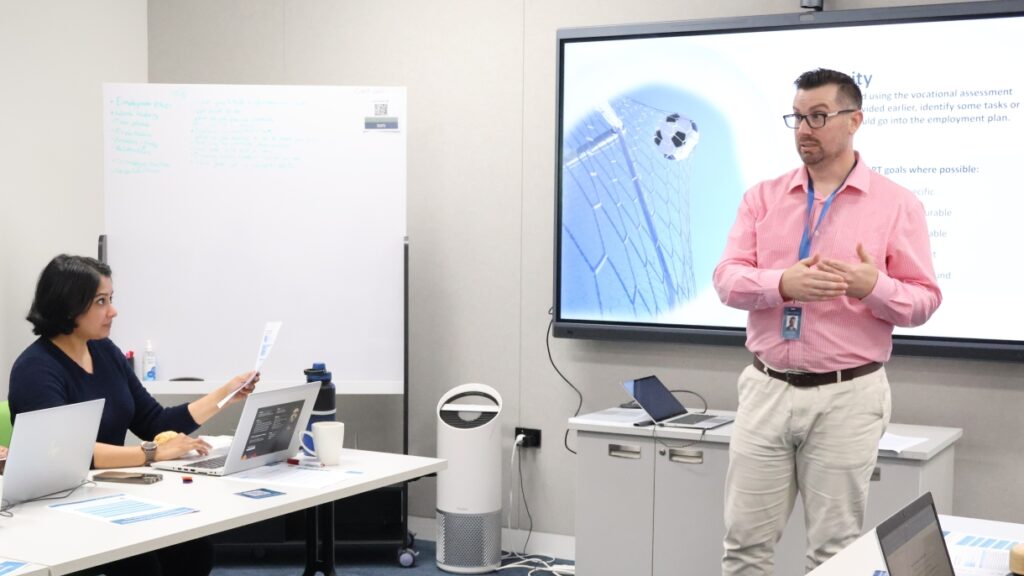Media release: Compelling evidence on IPS employment support in Aotearoa
Published:
September 6, 2024
Library type:
Keywords:
A paper published in the New Zealand Medical Journal today contains clear messages about the effectiveness of employment support in Aotearoa.
When people are able to access employment support using the individual placement and support (IPS) approach, they earn more money, hold onto jobs for longer, gain more qualifications and have more access to mental health supports and services. In short, it helps people to get on with their lives and improve their wellbeing.
Warren Elwin, Chief Executive of Work Counts says the study demonstrates both social impact and financial return.
“The study is historically significant not just for the opportunity to provide findings and observations for the government’s social investment approach here in New Zealand, but also internationally where IPS employment support is present. It’s also as close to a randomised controlled trial (RCT) as you can get.”
The article, based on research conducted by the Ministry of Social Development, explains the impacts on key social indicators. This is the second of two evaluations. The first study from 2019 showed that IPS employment support is done well in New Zealand and that it’s effective.
This second stage of the research, which commenced in 2022, shows the impacts of effects on people and their life circumstances.
“We are keen to highlight and disseminate the findings as widely as we can. This study demonstrates what community services and Health New Zealand can achieve when working together, and shines a light on the benefits of expanding the availability of IPS employment support,” says Warren.
One of the researchers behind the paper, Dr Helen Lockett, says that for New Zealand, the research shows that IPS employment support not only makes a difference to people’s mental health and wellbeing, but financially it’s a great investment option.
“IPS employment support is not yet available to all who would like to access it and that’s the next important step we need to take,” says Helen.
Currently IPS employment support is offered in 12 out of 19 health districts, mainly alongside secondary mental health and addiction services. Although nationally the workforce is growing, some districts have as little as one full-time equivalent (FTE) supporting the area’s population.
To reveal the findings from the research, Work Counts will be hosting a new webinar on 17 September, where people can hear from lead researcher Moira Wilson, and reflect on how the learnings can be applied in practice.
People can register for the webinar “The impact of IPS employment support on employment, health, and social outcomes: evidence from Aotearoa” on the Work Counts website here.
Further information
About the research
In 2019, Insights MSD approached Workwise (an employment support provider) to discuss a research study on the impact of IPS employment support within mental health and addiction services. Stage One of the study examined the employment outcomes of 3,000 people across five District Health Board (DHB) regions, all of whom had accessed Workwise services. The study found that employment outcomes were the same or better, compared with international results.
Stage Two commenced in 2022 with the purpose of comparing people accessing IPS employment support with a matched group of similar people who did not use IPS employment support. This study then investigated whether there were any ripples in education, justice system involvement, taxes paid, employment and other indicators. Results showed that people who accessed IPS employment support had more employment and gains in qualifications, and more independent income, when compared with people who did not receive employment support.
Findings:
- Combined with previous evidence, this suggests that expanded IPS employment support availability in mental health and addiction services would be beneficial.
- Compared with matched non-participants, IPS participants were 1.6 times more likely to be in employment after 12 months.
- Over three years, IPS participants had more income, more time in employment, gained more qualifications, and had more use of mental health and addiction services than matched non-participants, on average.
- Effects for Māori IPS participants were similar in direction and scale to the overall results.
The paper was published in the New Zealand Medical Journal on 6 September 2024.
About Work Counts
Work Counts provides expert support and training for organisations to develop and deliver IPS employment support programmes within their services.
Part of the Wise Group, Work Counts was established in 2018, supported by both the Ministries of Health and Social Development to provide sector leadership, technical assistance and training. Work Counts is one of six IPS employment support technical assistance centres globally.
Media contact
For spokesperson profiles, additional information and to make a media request, please contact media@workcounts.co.nz


